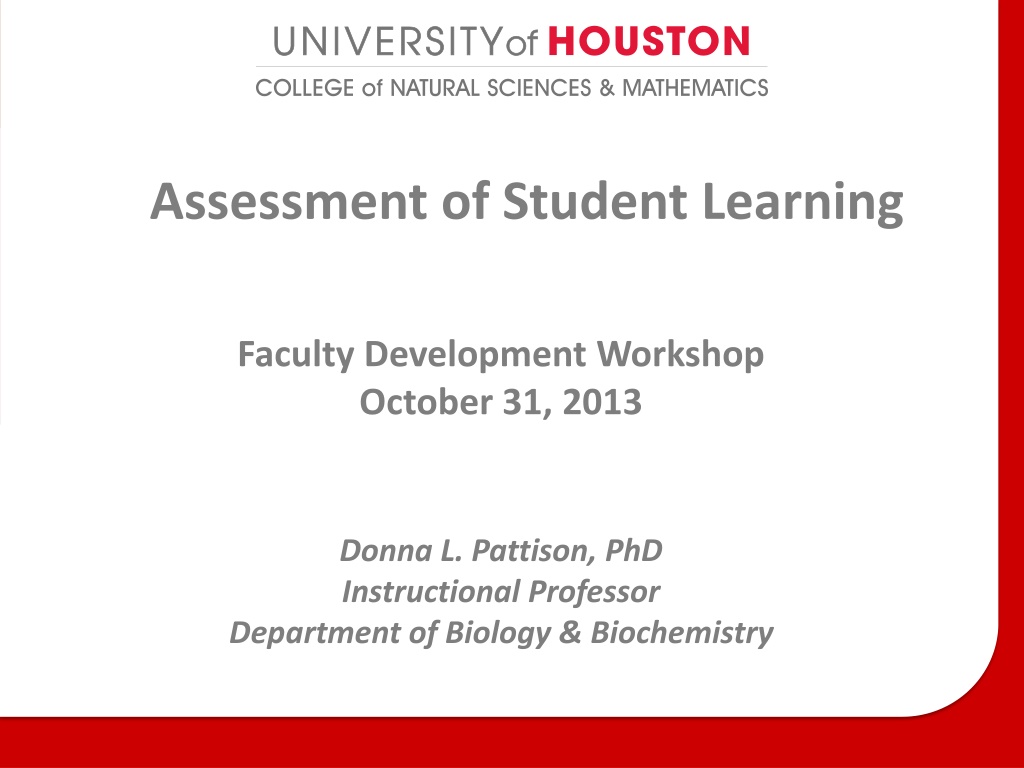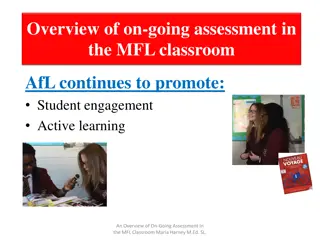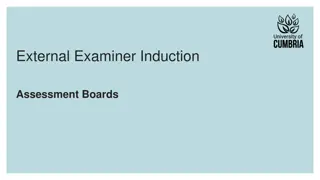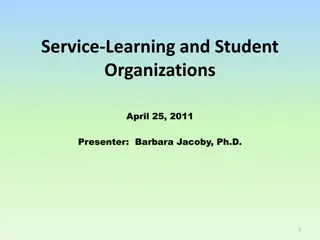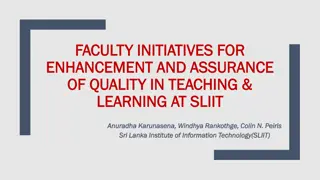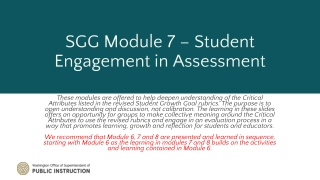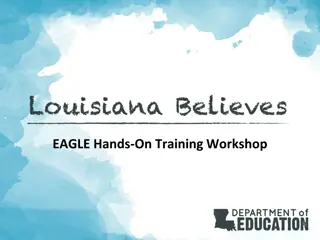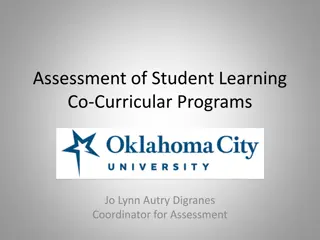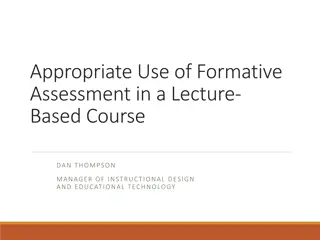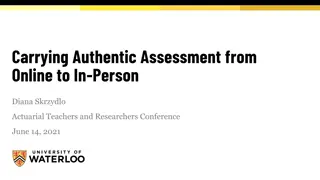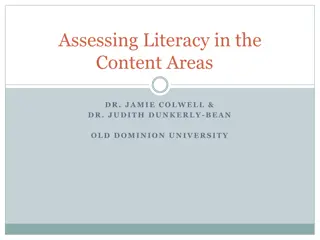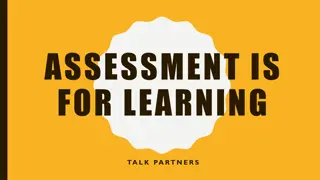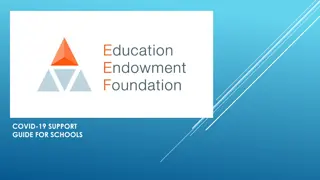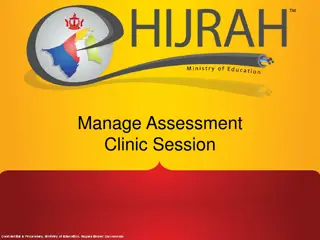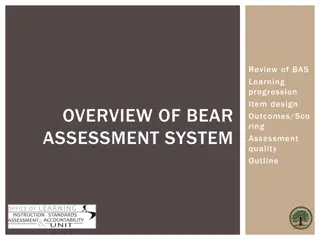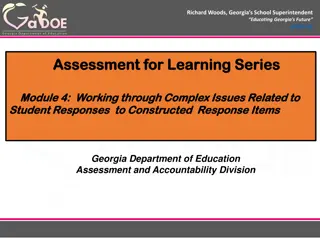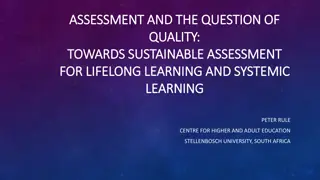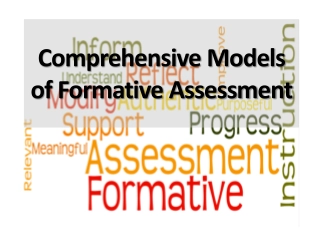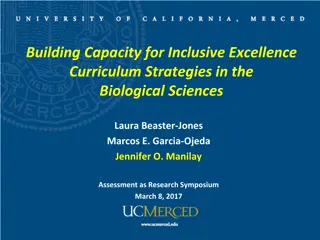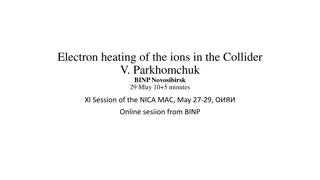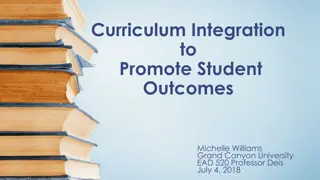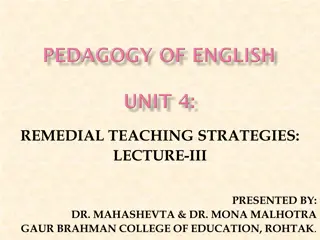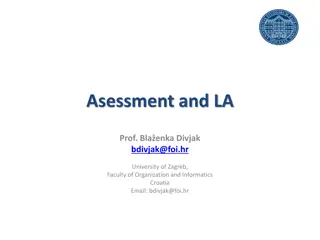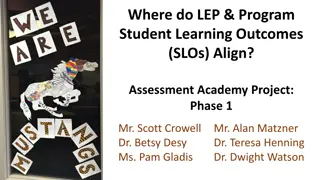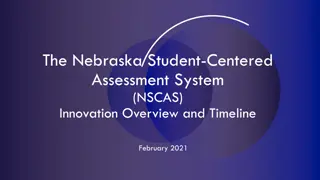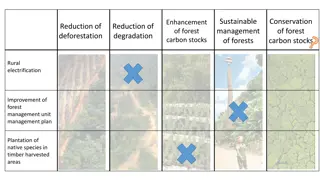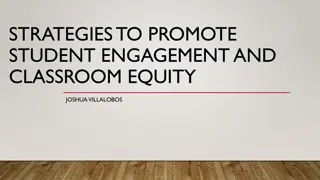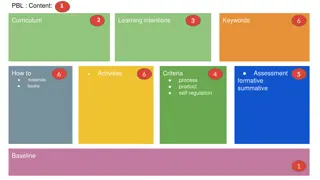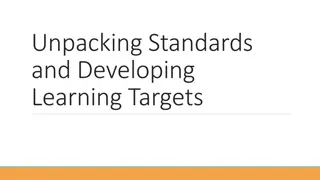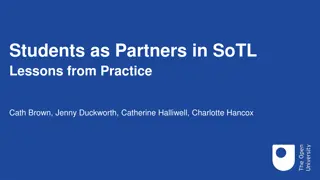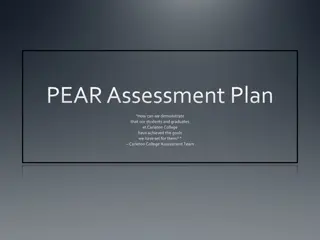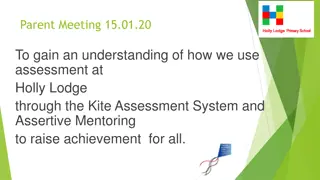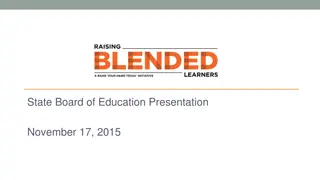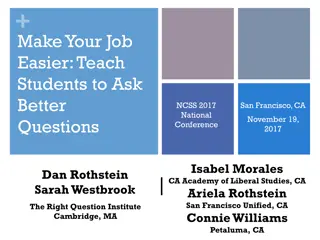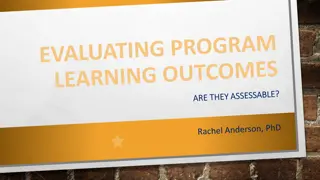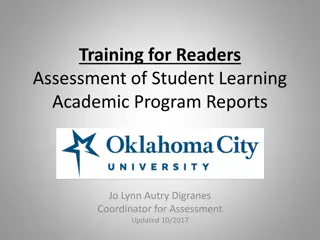Effective Assessment Strategies for Student Learning Enhancement
Explore the different levels of assessment in educational settings, including classroom, program, and university levels. Discover tools and methods for assessing student learning outcomes, attitudes, and program success. Learn about pre-/post-course surveys, examples of student responses, and effective strategies for evaluating learning activities.
Download Presentation

Please find below an Image/Link to download the presentation.
The content on the website is provided AS IS for your information and personal use only. It may not be sold, licensed, or shared on other websites without obtaining consent from the author. Download presentation by click this link. If you encounter any issues during the download, it is possible that the publisher has removed the file from their server.
E N D
Presentation Transcript
Assessment of Student Learning Faculty Development Workshop October 31, 2013 Donna L. Pattison, PhD Instructional Professor Department of Biology & Biochemistry
What types of things are helpful to assess : a. At the classroom level? b. At the program level (department)? c. At the university level?
What types of things are helpful to assess? a. At the classroom level? Attitudes and motivation Learning objectives Activities (specific assignments, homework, field trips, case studies, clicker useage, etc.) b. At the program level (department)? Program learning objectives Retention c. At the university level? Retention Student success across demographic variables
What tools can we use for assessment?
Two types of pre-/post-course surveys: 1. Attitudes and Beliefs 2. Knowledge
Surveys to assess a particular activity or ask a specific question : What were student perceptions on the field trip? What courses have students taken prior to this one? Did you find this learning activity helpful in mastering the concept? Quantitative: Use a Likert Scale (1 to 5) Qualitative: Open ended questions
Examples of Student Responses to an Open Ended Question Why the comment was informative to the instructor in red List at least one thing you learned on the field trip: 1. We should measure our successes in square feet and not in acres. (Prairie planting field trip). Student understands how difficult conservation is. 2. I learned how there are so many diverse factors that can affect a species all with different consequences. The frog near the Rio Grande behaves differently than the ones in the greater Houston area. It was interesting to see how scientists pose questions and think about all the different ways in which a hypothesis can be answered (mapping the campus frog population trip). The nature of science was successfully conveyed! 3. Undergrads can do research. The word is getting out! 4. The number of mass extinctions was more than I had thought (Paleontology Hall). The student has modified their understanding of the world. 5. Possums don t carry rabies (Texas Wildlife Rehabilitation Coalition field trip). Another common misconception has been debunked! 6. CO2 in the air is where plants get their carbon (Community Garden Field Trip). Not the soil! Common misconception corrected! You have to know what questions to ask with a multiple choice question. With an open ended question, you often learn surprising things and can see through the student s eyes.
How can surveys be administered? 1. Paper 2. Scan Trons 3. Blackboard 4. Survey Monkey
SurveyMonkey Free Easy to use If you need to match responses to an individual, you must use the full version. The free version only gives you aggregated data. A lot of ways to share:
How do you get reasonable participation rates? 1. A modest number of points a. Class credit b.Extra credit 2. Complete at the beginning of class 3. Exit surveys 4. Incentives (drawing for prize)
How do we know if an assignment was effective? Quiz or exam Track attempts on electronic homework Pre- and post- assessments Ask students to explain or illustrate
Assessment is Iterative Ask questions about teaching or learning Modify teaching, assignment, etc. Collect data Evaluate data Tanner, K. and Allen, D. (2004) Approaches to Biology Teaching and Learning: From Assays to Assessments On Collecting Evidence in Science Teaching. Cell Biology Education. (3), 69-74.
